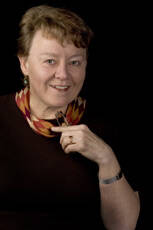The University of Mississippi was unprepared for its first African-American student. When James Meredith’s application for admission was rejected in 1961 because of his race, he took the school to federal court, claimed discrimination and won. The U.S. Supreme Court ruled that the university had to admit Meredith, who arrived on a Sunday (Sept. 30, 1962), accompanied by 500 federal marshals and other guards. President John F. Kennedy and U.S. Attorney General Robert Kennedy had anticipated resistance, but because they had personally discussed the integration of the university with Mississippi’s Gov. Ross Barnett, they thought Meredith had ample protection. Instead, riots broke out. A mob of 2,000 people attacked the guards, shots were fired, dozens were injured and two students lay dead at Ole Miss. The next day soldiers escorted Meredith to his first class. It took 23,000 federal troops and National Guardsmen, all dispatched by President Kennedy, to restore order on campus.
Forty-six years later almost to the day (Sept. 27, 2008), Ole Miss welcomed the Democratic candidate Barack Obama for the first presidential debate of 2008. No troops were needed; the campus was calm, the students and faculty cordial.
Such progress in race relations cries out for reflection. Whatever one’s politics, the candidacy of Senator Obama marks how far we have come as a nation in casting off our racial prejudice. Although Jesse Jackson was a serious contender for the Democratic Party nomination in 1984 and 1988, until this year no candidate with a black parent has ever won a major party’s nomination. This year’s election may be a close one. And an African-American may win the presidency with both the popular and the electoral vote.
Nonetheless, racism lingers. How much it lingers will be seen in the extent to which the campaigns appeal to racism during these final days, and the extent to which voters allow race to keep them from voting for the black candidate. Public campaign conduct can be scrutinized and analyzed. (Under “campaign conduct” I include the work of privately funded political action committees, like Freedom’s Defense Fund, the National Campaign Fund and the Black Republican PAC.) But what lies in the hearts of voters is more difficult to detect, measure and overcome.
In March Senator Obama delivered a speech on race in response to the divisive, cynical remarks of the Rev. Jeremiah Wright, once his pastor. Obama showed how well he understood the anger of both blacks and whites when it is based on legitimate wrongs endured. “The fact is,” said Obama, “that the comments that have been made and the issues that have surfaced...reflect the complexities of race in this country that we’ve never really worked through—a part of our union that we have yet to perfect.” The speech was a high point of this presidential race.
There have also been low points. In September The New York Times quoted a parishioner of Holy Rosary Catholic Church in Scranton, Pa., who stood in the rectory kitchen and ruled out voting for Mr. Obama because he is black. “Are they going to make it the Black House?” he added.
“I’ll never vote for a black person”; “Hang that darky from a tree!”; “He’s a half-breed and he’s a Muslim”—said some people in Indiana and Pennsylvania to the mostly high school or college students working for the Obama campaign, according to a Washington Post article on May 13. In Vincennes, Ind., the Obama campaign headquarters was vandalized. Yet in its press release, the campaign kept the incident in perspective: “After campaigning for 15 months in nearly all 50 states, Barack Obama and our entire campaign have been nothing but impressed and encouraged by the core decency, kindness and generosity of Americans from all walks of life. The last year has only reinforced Senator Obama’s view that this country is not as divided as our politics suggest.”
Decency, kindness and generosity, not to mention our mutual concerns, could form a strong basis for unity. As Senator Obama put it, “If we walk away now...we will never be able to come together and solve challenges like health care, or education, or the need to find good jobs for every American.” One need not endorse the candidate to endorse that dream. Maybe this year a majority of voters will move beyond prejudice and the politics of division.








